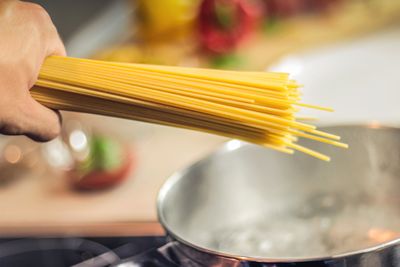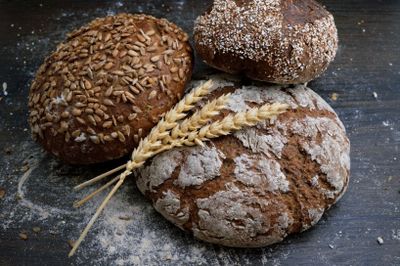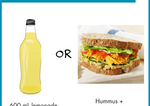Low-carb craze: Should we avoid carbohydrates?
by Guest Author,
- November 6, 2019
- Leave a comment
- Healthy eating
- Mythbusting
- Shopping
- Fruit and Vegetables
- Weight Management
- Junk Food
- Smart Swaps
- Nutrition Facts

Jasmin Wademan, student dietitian Curtin University
For years carbohydrates or “carbs” have been portrayed as evil. We see endless weight loss diets suggesting that we ditch the carbs…diets like low-carb, Atkins, keto, paleo… the list goes on!
These diets claim that cutting carbs will lead to weight loss, but is that the truth? And should we really be avoiding them?
What’s all the hype about?
The theory behind the low-carb diet craze is that eating carbohydrates causes an increase in the hormone insulin. Insulin, also known as the ‘storage hormone’, causes storage of energy in the form of fat (insulin also promotes muscle growth, but we don’t hear much about that!). The idea is that cutting down on carbohydrates will mean less fat storage and therefore weight loss.
While this sounds great in theory, if we look at studies of low-carb diets in real people we see no difference when comparing low-carb and other weight loss diets. Low-carb diets have been associated with losing weight in the short term, but these results are not maintained and don’t translate into long term weight loss.
Following a very low-carb diet such as keto or Atkins can lead to negative side effects such as headaches, nausea, fatigue, constipation and bad breath. You’re also risk missing out on a lot of healthy foods which can lead to nutrient deficiencies - in particular very low carb diets tend to be low in fibre which is bad news for your bowel health.
Tip: For sustainable weight loss make healthy diet and lifestyle changes that you can stick to long term. Check out LiveLighter’s top tips for a healthy lifestyle here.
What exactly are carbohydrates?
Thanks to fad diets and the media spotlight…. when we think of “carbs” our minds go straight to highly processed junk foods like pastries, pizza, chips and cake. It’s true that these foods contain carbohydrates, but carbohydrates are not one thing and they are found in a range of healthy foods as well.
The word “carbohydrate” describes all compounds made up of sugar molecules, ranging from simple sugars like table sugar (sucrose) and honey, to more complex molecules like starch and fibre. All these different types of carbohydrates have different health benefits and effects on metabolism. So, rather than excluding all carbohydrates, it’s important to consider the type of carbohydrate we are eating.
Healthy carbohydrate sources include:
- Wholegrain foods such as brown bread, wholemeal pasta, brown rice and oats.
- Fruit and vegetables
- Legumes such as beans, chickpeas and lentils.
- Dairy foods
Tip: Eat more wholegrains, fruit and veg and cut down on ultra-processed carbs like cake and biscuits

Why are healthy carbohydrates important?
Carbohydrate foods, in particular wholegrains, provide a range of key nutrients such as B-vitamins, iron, vitamin E, protein and zinc that are essential for good health.
Wholegrains are also high in fibre. This is great for bowel health, feeding the good bacteria in our guts. High-fibre carbohydrates are also digested slowly, providing long lasting energy and keeping you feeling full for longer.
The Australian Dietary Guidelines recommend that Australian adults eat 4-6 serves of grain/cereal foods (depending on your age and gender) per day to reduce your risk of a range of diseases such as cardiovascular disease, type 2 diabetes and bowel cancer.
Key points
- Choose good quality, wholegrain carbohydrates such as wholemeal bread and pasta and brown rice.
Tip: Look for words like ‘wholemeal’ or ‘wholegrain’ on the label.
- Don’t ditch all carbohydrates. Instead, cut down on highly processed carbohydrates such as fast food, cakes and biscuits.
- Enjoy your carbs and drop the food guilt!
LiveLighter supports future health professionals through engagement with Australian Universities. This student blog was created for LiveLighter as part of Advanced Public Health Nutrition Practice coursework (Master of Dietetics at Curtin University, Western Australia).







